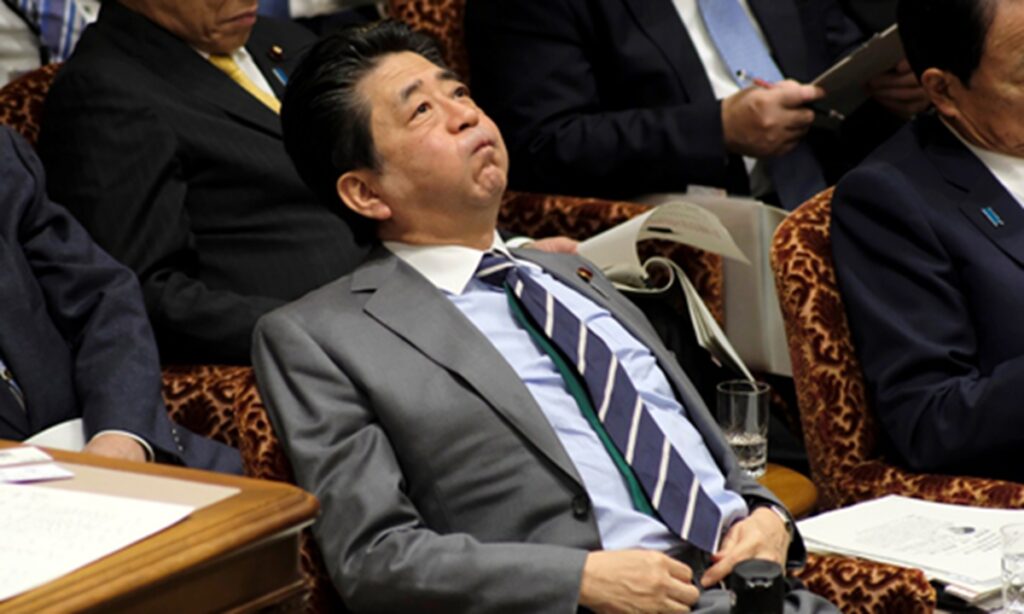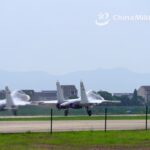Japan’s pacifist constitution recently drew attention when Alexander Venediktov, the deputy secretary of the Russian Security Council, said that the department is “alarmed by the debate in the Japanese society about whether Tokyo should abandon the pacifist principles enshrined in the country’s basic law.” Venediktov warned, “If these initiatives move closer to reality Russia will certainly have to act to ensure its own security.”
The constitutional amendment has been part of Japanese Prime Minister Shinzo Abe’s political agenda since his second term started in December 2012. Abe hopes to make the amendment a political legacy. If there wasn’t the impact of rampant COVID-19 pandemic, Abe might possibly realize breakthroughs before September 2021 when his third term expires. But now he is not favored by domestic politics nor diplomatic environment to fulfill his long-cherished wishes.
Abe still has the trump card of dissolving Japan’s House of Representatives. But his approval rating is only at 34 percent, the lowest since the beginning of his second term. Hence, it is hard to say if Abe can use any card up his sleeve.
As the coronavirus continues to spread across Japan, the vast majority of Japanese people care more about effective prevention and treatment measures. In this context, if Abe puts the constitutional amendment on the table right now this will be a move that is tantamount to digging himself a fresh grave.
Nonetheless, to some extent Abe can still use national security concerns as a hook, such as threats from neighboring countries, including tensions with China and situation on the Korean Peninsula.
Japanese Minister of Defense Taro Kono has recently been rhetorically tough. He said in a press conference on August 4 that Japan doesn’t need the permission or understanding of other countries to defend its own territory with capabilities that it hasn’t had in the past due to its pacifist constitution and other constraints.
Japan has also actively involved itself in issues related to the South China Sea and Hong Kong, in addition to announcing plans to build an electronic warfare unit.
By including a constitutional amendment into the framework of national security, it is possible that Japan is superficially acting in response to threats that the country faces from regional countries in order to break the restraints of its pacifist constitution.
In case Abe realizes his goals of a constitutional amendment, Japanese society might turn more politically conservative – meaning a possible increase of hostilities against China.
With this scenario Tokyo could strengthen its armaments and renew the role of the Japan Self-Defense Forces (JSDF) according to new situations at home and abroad. This will help the JSDF acquire so-called preemptive strike capabilities overseas. This will not only influence disputes over the Diaoyu Islands between Beijing and Tokyo, but also Japan’s involvement in the Taiwan Straits, the South China Sea, and the US Indo-Pacific Strategy.
If these courses of action manifest themselves, they would add uncertainties to geopolitics and regional relations that China would react to. Japan’s bold move could also trigger a domino effect: South Korea would definitely be more vigilant. Meanwhile, Russia also seeks to defend its own interests, which could result in a “Black Swan” event in Northeast Asia and Asia-Pacific countries.
The reason Moscow gave a straight warning toward Tokyo lies in Russia’s concerns over territorial disputes with Japan. If JSDF gets a new role granted by constitutional changes, then Japan will have the capability to initiate attacks—and possibly do so to capture the four Northern Islands.
All in all, if Tokyo breaks through the principle of self-defense, the Japan’s domestic militant forces may rise with it. This could cause more uncertainties.
The article was compiled by Global Times reporter Xu Hailin based on an interview with Da Zhigang, director and research fellow of the Institute of Northeast Asian Studies at Heilongjiang Provincial Academy of Social Sciences and chief expert at the Northeast Asian Strategic Studies Institute. opinion@globaltimes.com.cn
Japan’s Prime Minister Shinzo Abe reacts during a budget committee session of the upper house at parliament on Thursday in Tokyo. Photo: AFP




